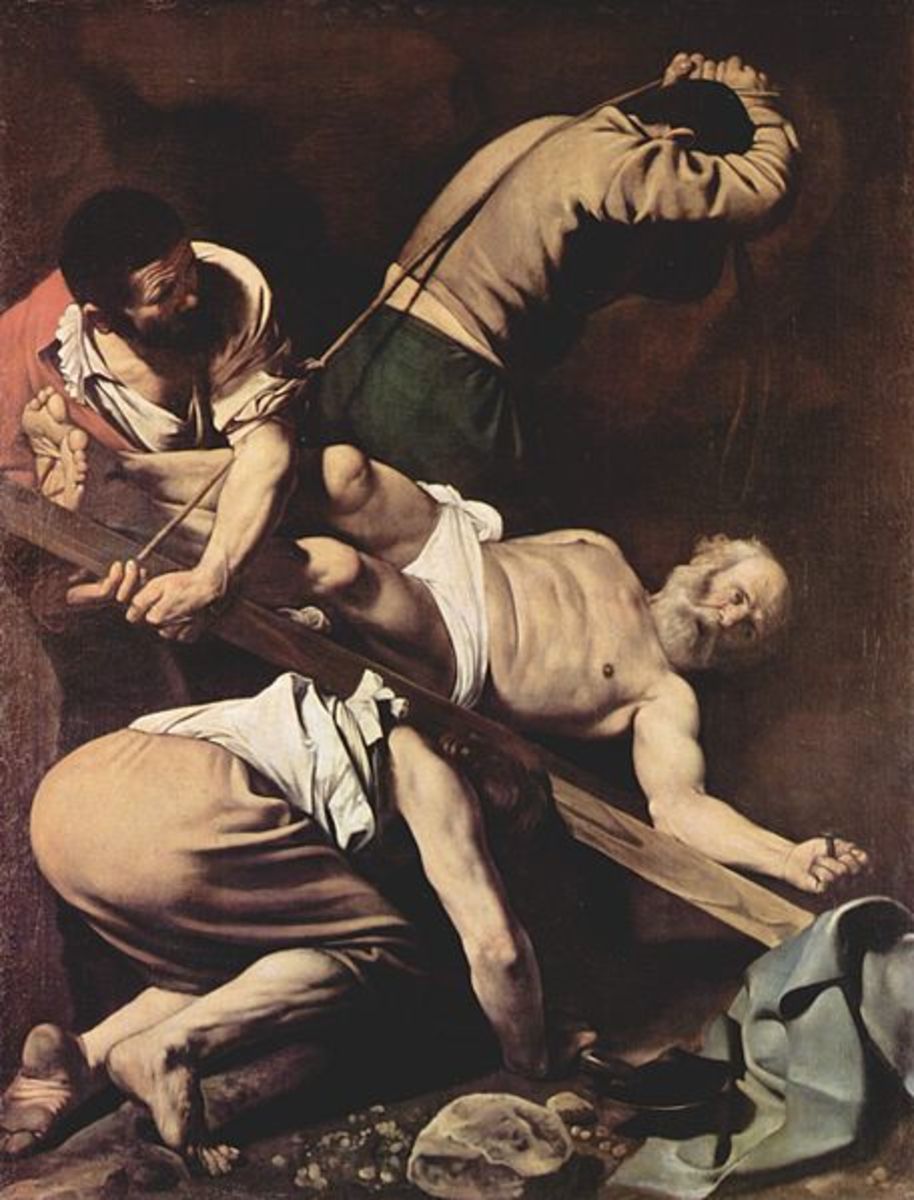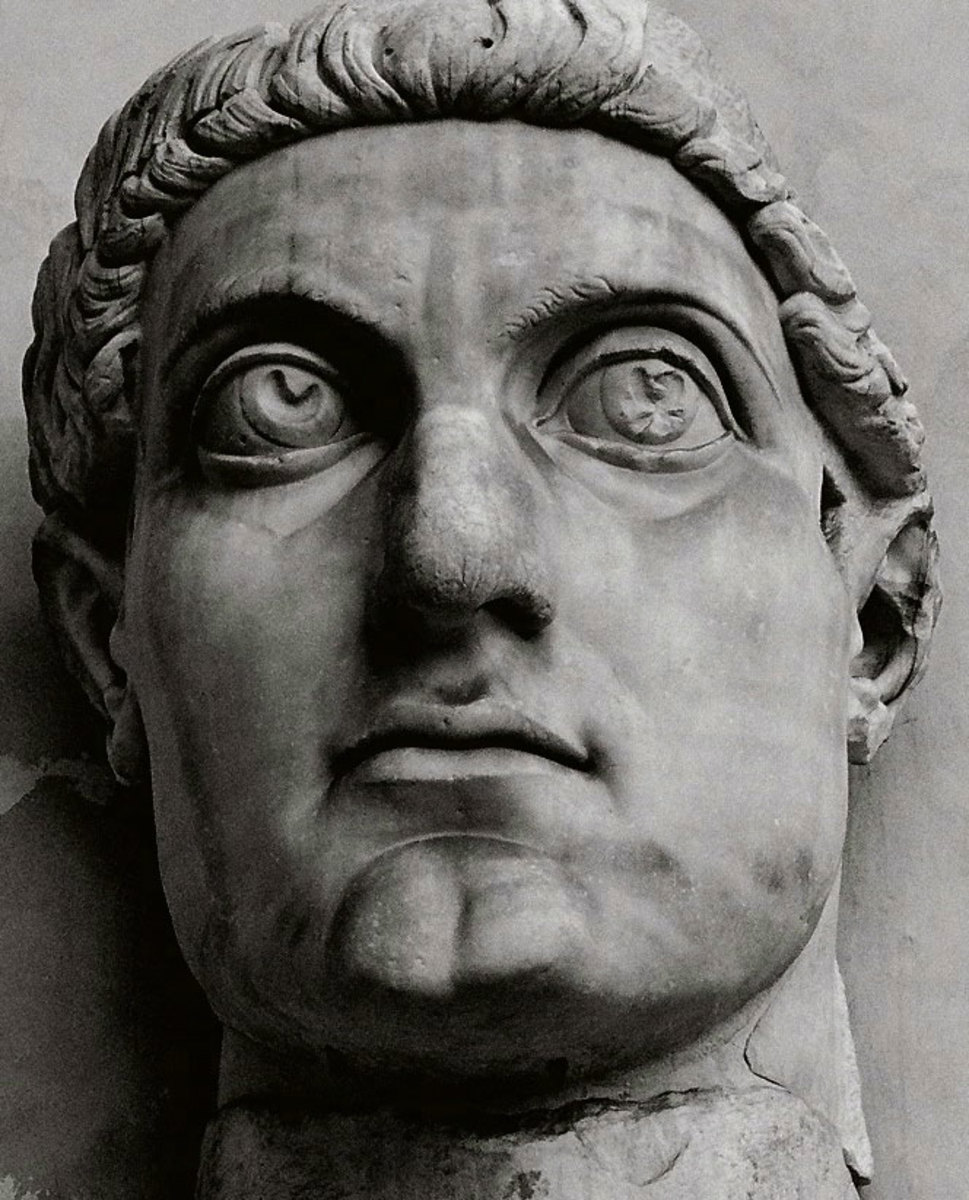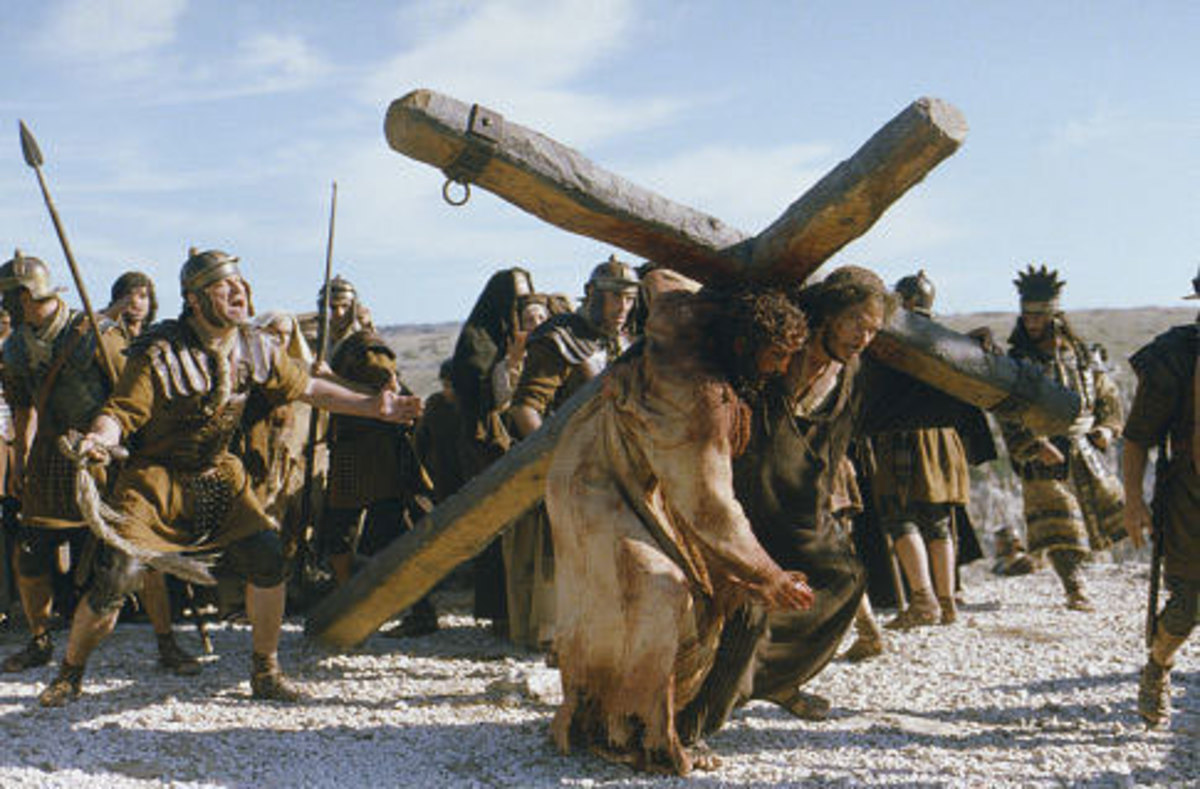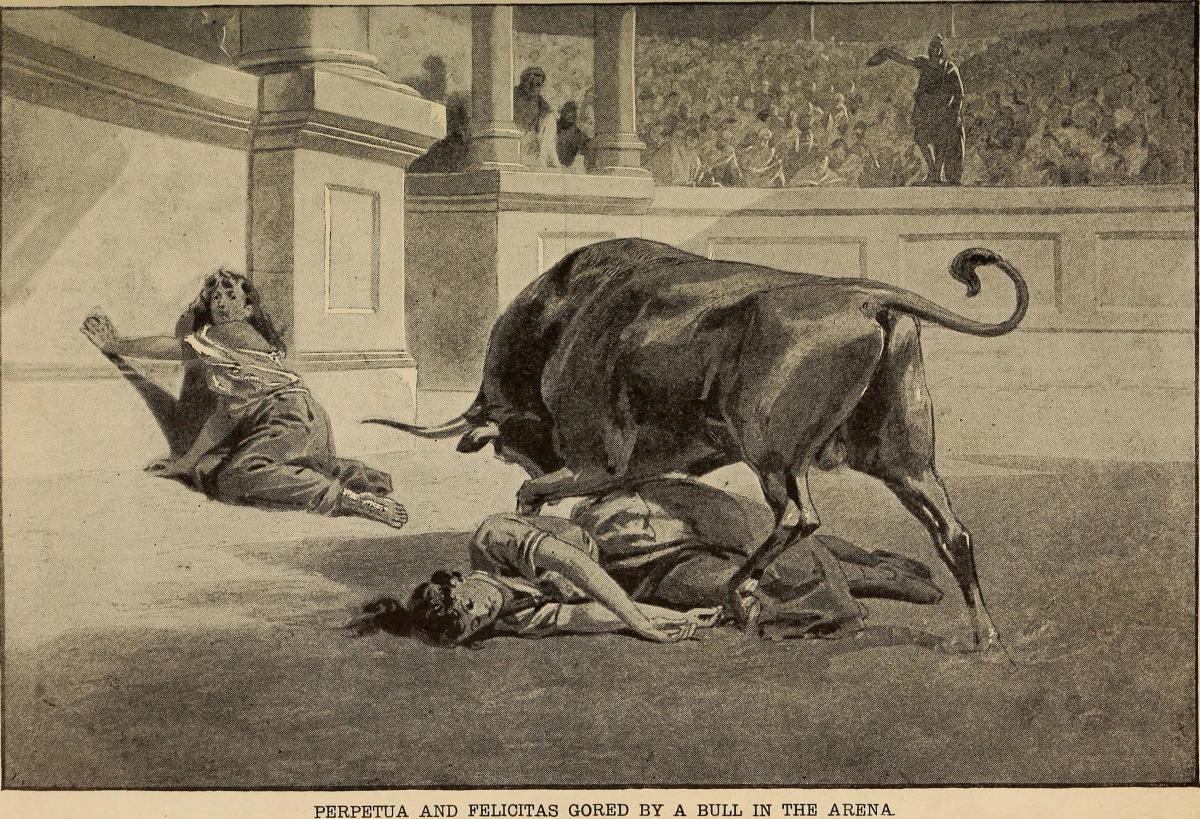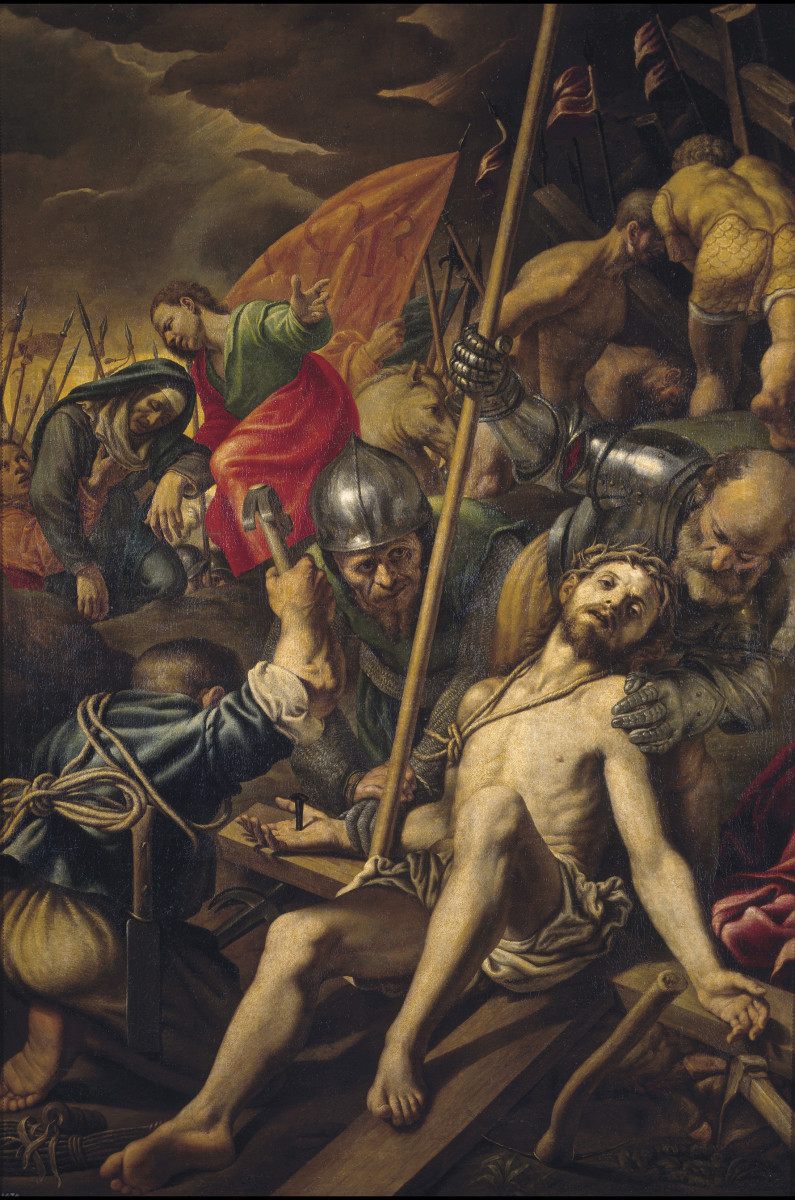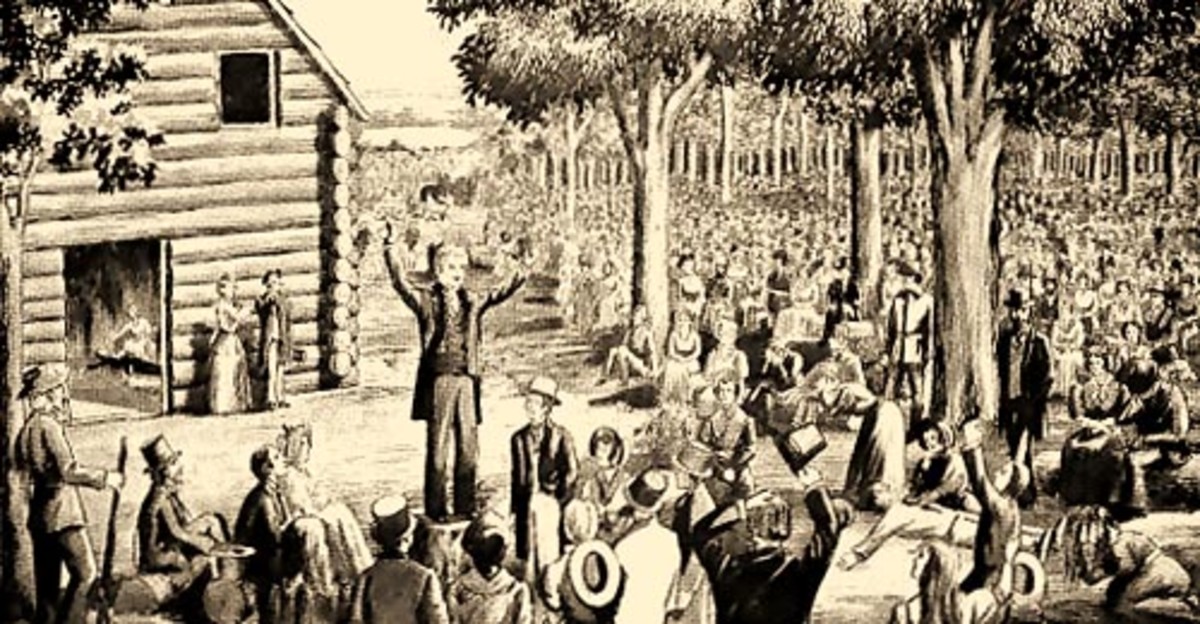The Militant Christian
The Militant Christian
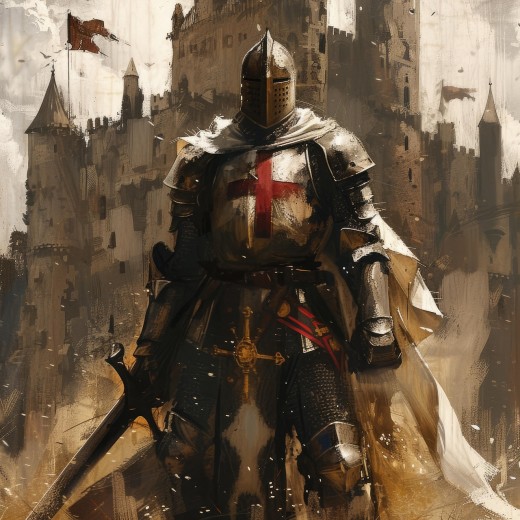
The Militant Christian
... for all they that take the sword shall perish with the sword.
Mat 26:52
From the outset, the Christian church has been under attack. Stephen was stoned, James beheaded, the apostles beaten and imprisoned, yet there was no retaliation, no revenge, and no counter struggle, at least not a physically violent one. Their methods of combat were prayer, compassion, and preaching,because they believed:
2Cor.10:4 For the weapons of our warfare are not fleshly, but mighty through God to the pulling down of strongholds, and yet:
Acts 6:7 And the Word of God was increasing. And the number of the disciples in Jerusalem was multiplying exceedingly; even a great crowd of the priests obeyed the faith.
For the next three centuries Christians were persecuted, murdered, used for circus entertainment, set alight as human torches, and fed to wild animals, and yet:
Acts 12:24...the Word of God grew and increased.
Christians were attacked by Romans, Jews, Persians, Muslims, Vikings, pagans, and even other Christians and yet:
Acts 19:20 So the Word of God grew mightily and prevailed.
Christianity has been at war since the birth of Jesus when Herod sent his army to kill the babes of Bethlehem. It’s weapons of resistance have always been the Word of God and prayer. It was a war won with the blood of martyrs, some of whom gave their lives voluntarily. The endless attacks did eventually spilled over into physical retaliation.
On November 27, 1095, at the Council of Clermont in France, Pope Urban II started the 200 years of Crusades that history remembers as some of the darkest days of Christianity. He urged the knights and noblemen and all those present to become ‘Soldiers of Christ’ and take back the Holy Land. Through this act, they would receive remission of sins and save their souls. ("Chronicle of Fulcher of Chartres," Book I, The First Crusade, Second Edition, ed. Edward Peters (Philadelphia: University of Pennsylvania Press, 1998), 63-101. ) Those who undertook the pilgrimage were to wear the sign of the cross or croix in French from which we get the word croisade or "Crusade." His speech so stirred the hearts of those present that by the time he finished they were shouting "Deus le vult! - God wills it!" ( Anonymous, Gesta Francorum et aliorum Hierosolymitanorum (Latin), ed. Heinrich Hagenmeyer (Heidelberg: Carl Winter, 1890)) The Pope answered their cry with the words, “Let this then be your war cry in combat, because this word is given to you by God. When an armed attack is made upon the enemy, let this one cry be raised by all the soldiers of God: It is the will of God! It is the will of God!” The battle cry “Deus le vult!” was heard on the battlefields of that First Crusade, which finally endedwith the siege and appalling behaviour of the crusaders during the occupation of Jerusalem. The papal instituted slogan would be the Christian warrior’s war cry until the late-13th century when the last of the Crusades finally came to an end. Ever since then the cross has been carried into countless battles, often by both sides involved in the conflict.
There were other battle cries over the ages, most notably: Dieu et mon Droit, a battle cry that became a national motto. Dieu et mon Droit literally means 'God and my right,' which refers to the divine right of Kingship i.a.w. the king gets his right to rule from God. It is believed that Richard Lionheart used this rallying cry at the Battle of Gisors in 1198. Henry V then made it the Royal motto of England, and it now appears on the Royal coat of arms.
The militancy of Christianity is a story written in blood, starting with the blood of Jesus Christ being spilled on a cross, the first Martyr, and is still being written in the blood of Christian martyrs today.
Militarism became part of Christian life and it was the Christian’s duty to defend the faith by any means possible even against other Christians.Atrocities would be committed in the years and centuries thereafter in the name of Jesus Christ.
Leo Tolstoy, the author of War and Peace, saw Christian militancy in a completely different light. He interpreted Jesus’ teachings as an order not to resist under any circumstance. After studying the Sermon on the Mount he decided that pacifism and non-retaliation was a commandment given by Jesus. He concluded that no Christian should be involved in the armed forces, the police, or law courts!
The Oxford Dictionary definition of militancy and pacifism is:
militant
adjective:
favouring confrontational or violent methods in support of a political or social cause.
Synonyms:...aggressive, violent, belligerent, bellicose, assertive, pushy, vigorous, forceful, active, ultra-active, fierce, combative, pugnacious;
a militant person.
Synonyms: activist, extremist, radical, enthusiast, supporter, follower, devotee, Young Turk, zealot, fanatic, sectarian, partisan
source: https://en.oxforddictionaries.com/definition/militant
pacifist
A person who believes that war and violence are unjustifiable.
Synonyms: peace-lover, conscientious objector, passive resister, peacemaker, peace-monger, appeaser, pacifier.
source: https://en.oxforddictionaries.com/definition/pacifist
Militant or Pacifist? Two complete opposites, or are they? Are they not identical in ambition and goals, the only difference being their methods?
Most Christians who advocate non-violence usually refer to the ‘cheek’ passage of the Sermon on the mount. Every hymn, song of praise, and lament, every prayer, sermon, confession, or service is a war cry
‘against principalities, against powers,against the world's rulers, of the darkness of this age, against spiritual wickedness in high places.
(Eph. 6:12)
Mat 5:39 But I say unto you, That ye resist not evil: but whosoever shall smite thee on thy right cheek, turn to him the other also.
Sinclair Ferguson had this to say about ‘turning the other cheek’: ‘The problem comes when we isolate and absolutize Jesus' words without giving due attention to the context, the flow of the argument, and the specific social implications of the time. Jesus clarified what he meant by providing four one-sentence illustrations of what it means to "not resist an evil person." Each of the illustrations is culturally specific, but they give us general principles for today's living. The principles are not for everyone, but only for those who follow Christ.’ (Ferguson, Sinclair: Sermon on the Mount: Banner of Truth)
Ferguson says therefore that Matt.5:39 must be read in context to the following verses and not repay evil with evil. Striking somebody on the right cheek was deeply insulting in the ancient Near East.
Smite or rhapidzo in the Greek (Strong’s #G4474) means to hit with the open hand, especially on the cheeks or ears. Rhapidzo should be distinguished from kolaphizo which means to punch or strike with a clenched fist. Both verbs are used to describe the treatment of our Lord on the night He was betrayed and brought before the High Priest, undoubtedly some of the scribes and Pharisees who had tried to bait Jesus during His ministry were present. It was in this, His moment of extreme humiliation and pain, we see that Jesus practiced what He preached giving His disciples an example to follow...
Then they spat in His face and beat Him with their fists (kolaphizo); and others slapped (rhapidzo) Him (Matt. 26:67).
What is Jesus teaching in this living example of non-retaliation to evil? Jesus is teaching believers, citizens of the kingdom of heaven, (and these instructions are intended for those who are poor in spirit, those who are meek, those who are persecuted for the sake of righteousness, etc) that they are not to retaliate against insults, that their non-retaliation would be a form of resistance. Pacifism could and would be an extremely powerful form of resistance.
When He was slapped in the face, He could have called on a host of angels – and how He must have been tempted to do so – but knowing temptation comes from the Evil One, He did not retaliate (Isaiah 50:6) as it would have jeopardized His mission to earth. His silence was the most powerful form of resistance He could offer. It led to the greatest victory ever achieved by one Man.
Francis Bacon wrote…“In taking revenge, a man is but even with his enemy; but in passing it over, he is superior.”
But the enemy has brought the spiritual fight into the physical world. Christians are being attacked en masse. How far must our pacifism go? At what point do we stop being silent in the face of the enemy?
J. V. McGee tells the joke about the Irishman whom someone hit on the cheek and knocked down. The Irishman got up and turned his other cheek. The fellow knocked him down again. This time the Irishman got up and beat the stuffin’ out of that fellow. An observer asked, “Why did you do that?” “Well,” replied the Irishman, “the Lord said to turn the other cheek and I did, but He never told me what to do after that.” (McGee, J V: Thru the Bible Commentary: Nashville: Thomas Nelson)
Let us consider other words and actions of Jesus.
John 2:15 And when He had made a scourge of small cords, He drove them all out of the temple, and the sheep, and the oxen; and poured out the changers' money, and overthrew the tables;
Not the actions of a pacifist.
Matt. 11:12 And from the days of John the Baptist until now the kingdom of heaven suffereth violence, and the violent take it by force.
Matt. 16:18 And I say also unto thee, That thou art Peter, and upon this rock I will build my church; and the gates of hell shall not prevail against it.
This does not describe a defensive position but an aggressive one.
Each one of these is a call to arms to undo the work of the enemy. In His teachings, Jesus seems to be advocating different forms of resistance depending on the situation. There will be times when we must be on the defensive and silent and other times when we go over to the offensive and turn the tables on the enemy. Whichever form our resistance takes we must do it for the glory of the kingdom. Even the humblest of us is involved in this fight. We cannot call ourselves, conquerors without having conquered, we cannot fight the good fight without fighting. Jesus said, “...I did not come to bring peace but a sword.” (Matt.10:34).
Luke 22:36 And He said to them, But now, he who has a purse, let him take it, and likewise his wallet. And he who has no sword, let him sell his garment and buy one.
It has become easy to keep quiet and acquiesce or conform to the conventions of this world rather than confront it. It has become easy for us to leave our fight to the police and army. Turning the other cheek was not meant to be an excuse to run away but to stand our ground no matter what the world or the enemy throws at us. Our actions must be designed to win souls for the kingdom and not lose them. How do we compare to the early church? The church is becoming irrelevant in the world today because our words do not match our actions.
When Nobel Chairman Gunnar John delivered his presentation speech for Martin Luther King’s 1964 Peace Prize, he quoted Jesus: “Whosoever shall smite thee on thy right cheek, turn to him the other also” (Matt. 5:39). As Mr John noted: “It was not because he led a racial minority in their struggle for equality that Martin Luther King achieved fame...[His] name will endure for the way in which he has waged his struggle.”
In 1955, King had led a year-long, peaceful boycott to protest segregation on buses. He paid a high price. His home was bombed, and he was assaulted and arrested. He never retaliated. Eventually, he was murdered. To this day his name and legacy tower above all his detractors and opponents who have become no more than footnotes in the equal rights struggle.
Like Jesus let us not be timid and cowed by the world. ‘Meekness is not weakness but power under perfect control.’ Whether we are militant or pacifist in the struggle to get the message of Jesus across, we have a role to play. Therefore stand...(Eph.6:12).
Onward Christian Soldier!
© 2025 Warren du Plessis

